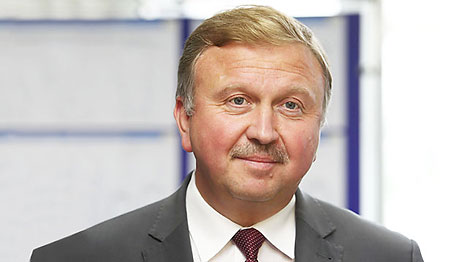Opinions & Interviews
PM tells Forbes about Belarus' Hi-Tech Park, advantages of investing in country's economy

When asked to comment on the consequences of the global economic crisis, the Belarusian head of government said that those aftershocks are still being felt. “It was not easy. Our key objective was to keep the GDP level up. The country did not do mass layoffs in response to falling demand. But in turn, this required significant public investment to keep the real sector afloat. We were forced to reduce capital expenditures on construction of public infrastructure. While this happened, we choose to stimulate exports, liberalized the business environment, managed to attract foreign investments, while maintaining the stability of our financial system,” the prime minister said.
Andrei Kobyakov added that despite limited natural resources, no sea access and a high dependence on external factors, the distinctive feature of Belarus is its stable political situation, clear economic path, and an open foreign economic policy. That compares positively to other countries in Russia’s orbit, like Ukraine, going from one political crisis to another. “We have to build constructive relations with the outside world…and build companies that sell to that world,” Andrei Kobyakov said. “Some 60% of Belarus’ economy is export-oriented. We are moving forward, improving technologies both in manufacturing and management. Our major resource is a hardworking and talented nation,” he added.
The Belarusian head of government stressed that a lot is done in the country to support small and medium enterprises, reinforce innovation, and strengthen the market institutions. “All of these principles are now part of our national development program until 2020. It is our 'road map' for development. The main goal is to improve competitiveness and increase social well being,” he said.
The prime minister also mentioned the free economic zones of Belarus. The main advantage of the Belarusian economic zones, including the Great Stone Industrial Park, is the geopolitical position of Belarus: the country borders on the EU, whereas its membership in the Eurasian Economic Union guarantees investors access to a market of 182 million consumers. “Companies that are set up in the Park get a package of benefits like liberalized land ownership and currency exchange rules, construction regulation, labor laws, and customs. It has a one-stop-shop in providing complex services to corporate investors. The entry-level investment ceiling was lowered to €500,000 to set up in there. Companies can acquire land for private ownership. We have engineering and construction of new facilities that are set to international standards. Companies get a special stabilization clause that protects them from any potential changes in Belarusian legislation, which could in theory worsen economic conditions,” he emphasized.
“Over 50% of FDI comes to Belarus from Western countries. Recent examples of foreign success stories were projects by the Lithuanian VMG Group and Arvi, Austrian Kronospan, Velcom, Raiffeisen, German Santa Bremor, Dutch Coca-Cola, and Swiss Stadler Rail. The main principle is plain and simple – fair and transparent businesses can count on our support in the government. There are unsuccessful examples as well. Over the last decade, we have seen withdrawal of around 10 multinationals on the Forbes Top 2000. But the most frequent reason for them leaving was a change in the company’s strategy against the backdrop of an economic downturn, and not just in Belarus, but in the region, if not globally,” he said.
Andrei Kobyakov also commented on Belarus’ achievements in the IT sector. “Our starting point for our ICT-outsourcing was in 2005, with creation of the High Technologies Park – a Belarusian “Silicon Valley”. It has an excellent investment climate. Belarus has a lot of potential because of our higher education in engineering and math. This provides good conditions for developing talents. The preferential tax regime allowed for the creation, over the last 12 years, of a powerful IT-cluster here with over 180 companies now. The export of computer services has increased 30-fold during that 12-year period,” the prime minister said.







 print version
print version make home page
make home page add to bookmarks
add to bookmarks

